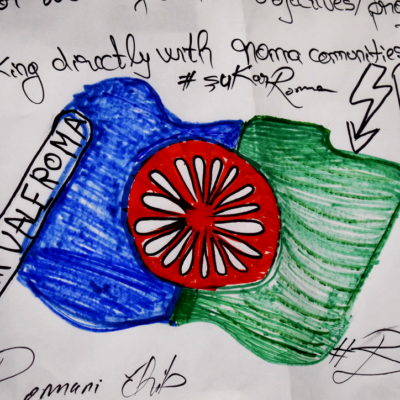In March 2020, history was written. On the 11th of March, Dr. Tedros Adhanom Ghebreyesus, the Director-General of the World Health Organization (WHO), made a declaration that would mark a turning point in global health: the ongoing coronavirus epidemic was officially declared a pandemic. This announcement came after weeks of escalating concern, tracing back to November of the previous year, when the first cases of an unknown lung disease came up in the Chinese city of Wuhan.
By the 31st of December 2019, China had officially reported cases of an unknown disease to the WHO, signalling the start of an international response to what would soon become a global crisis. By March 2020, the virus had spread to over 110 countries, infecting more than 118,000 people worldwide. 4,000 death cases were estimated at the time, but above all, Dr. Ghebreyesus was particularly alarmed that the number of people infected with the new virus outside China – had increased by a factor of 13 the previous two weeks – underscored the severity of the situation and the urgent need for a coordinated global response.

But this was just the beginning, the virus fundamentally changed the world as we knew it. Even though the peak seems to be over now, the effects are still being felt.
Dr. Tedros Adhanom Ghebreyesus, the Director-General of the World Health Organization (WHO)
One of the invited speakers at this year’s Warwick Economics Summit was WHO Director- General Dr. Ghebreyesus, who joined the summit online and exchanged views on the pandemic and its consequences with four student delegates in a panel.
Dr. Ghebreyesus is the first Director-General of the WHO from the African Region and began his career as a malariologist. He went on to lead regional health services and served as Ethiopia’s Minister of Health and Foreign Affairs. A major reform he implemented was the establishment of a primary health care program, which led to a significant reduction in child and maternal mortality by approximately 60% since 2000.
He underlined the turning point we are currently at and, according to him, it is the COVID-19 pandemic that has highlighted these conflicts and uncertainties, political divisions, geopolitical tensions, inflation, increasing poverty, narrow-minded nationalism and the threat of the climate crisis. But not everything in his view was bad, he also emphasised positive aspects, such as the rapid development of vaccines and its distribution by the COVID-19 Vaccines Global Access (COVAX) to countries in need.

COVAX
In April 2020 COVAX was founded and aimed to ensure equitable access to COVID-19 vaccines. COVAX was led in collaboration with the Coalition for Epidemic Preparedness Innovations (CEPI), Gavi, the Vaccine Alliance, the WHO and UNICEF. The initiative terminated on 31 December 2023.
Also the European Union played a significant role here. At the European Council meeting in May 2021, the EU committed to accelerating vaccine donations and providing at least 100 million doses to countries in need by the end of the year. It resulted in 407 million doses distributed by the Member States primary (86%) via COVAX in February 2022.
The world remains unprepared
Nevertheless, Dr. Ghebreyesus stressed one thing: “The world remains unprepared for the next disease ‘X’ and the next pandemic. We would face many of the same problems if we had another pandemic now.” For this reason, he calls for everyone to get involved, regardless of whether they are student associations or public health officials. The public should speak up and share their fears.

How the pandemic has impacted journalism
A second concern he highlighted relates to the spread of misinformation regarding the COVID- 19 pandemic. An issue that gains complexity on several levels when looked at with a little distance from the peak of the pandemic. Reporters Without Borders Germany informed in an article from November 2020 that certain governments were influencing the work of journalists who were independently covering the pandemic and its impacts. The aim was to downplay the pandemic’s severity. As a result, the pandemic had a direct impact on the safety of journalists and the freedom of the press.
In addition, Dr Ghebreyesus criticised the distribution of misinformation about the virus and the WHO in general: “claims that the agreement will give the WHO power to impose lockdowns on countries and vaccine mandates”. He clarified that the agreement, which was drafted that states commit to protecting themselves against future pandemics, supporting medical personnel, facilitating health research, ensuring equitable distribution of vaccines, sharing research data and funding pandemic preparedness, “will be followed in accordance with their own laws.” The pandemic agreement is thus intended to represent a global commitment to protect people and future generations
We must come together and learn from the current crisis

From the initial outbreak in Wuhan to the declaration of the pandemic and the global response that followed, Dr. Ghebreyesus was on the frontline advocating for international cooperation in underlining the urgent need for global solidarity, through initiatives such as COVAX, and the importance of preparing for future health threats. Despite issues such as misinformation and the politicisation of health interventions, his call to action remains clear: the world must come together, learn from the current crisis and invest in the health infrastructure and policies needed to protect against the next “disease X”.
During WES2024, a global campaign was kickstarted with the goal of engaging the youth in sharing their experiences with the COVID-19 pandemic as well as to promote discussions about the proposed pandemic accord. Anyone interested in sharing their experiences can participate by using the hashtags #AreWeReady and #PandemicAccord when posting on social media.




